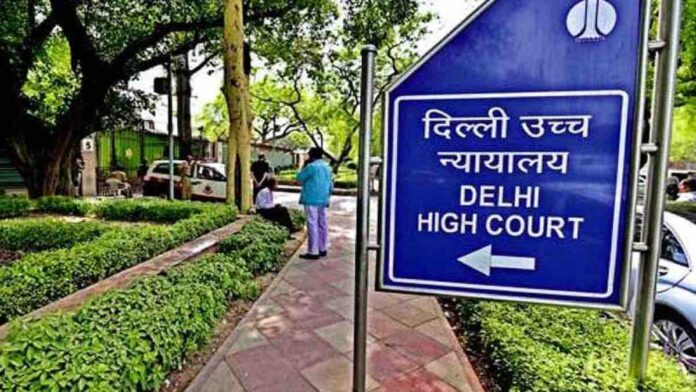The Delhi High Court has upheld the validity of the Indian law that allows only Indian citizens to be appointed as the guardian of a person with disability while dismissing the petition of the adoptive father of a boy, saying it is unable unable to countenance a right inhering in the petitioner to be appointed as a guardian.
The court’s order came on a petition by an American citizen who sought to be appointed as the legal guardian of his adopted son, also an American citizen, who suffered from severe mental retardation, under the National Trust for the Welfare of Persons with Autism, Cerebral Palsy, Mental Retardation and Multiple Disabilities Act, 1999.
The court, however, clarified it was not authorising the removal of the petitioner’s son from his custody and that he was at liberty to nominate an Indian citizen for appointment as the statutory guardian of his son, which shall be examined by the ‘Local Level Committee’ under the Act.

The statutory guardian as well as the petitioner shall be jointly responsible to care for and look after the welfare of the person with disabilities, it said.
The petitioner had questioned the validity of certain rules and regulations under the Act on the ground that it was impermissible to curtail the right of a person to be appointed as a guardian by linking it to his citizenship.
A bench headed by Chief Justice Satish Chandra Sharma said it cannot be concluded that a non-citizen can claim a right to be appointed as a guardian of a person with disability and the authorities were duly empowered to prescribe the qualifications for a guardian.
It observed that guardianship is always regulated by a statute and the expressions “parent”, “relative” or “any person” in Section 14 of the Act cannot be possibly understood as constituting a legislative intent to recognise foreign nationals as being entitled to be appointed as guardians under the Act.
“The court comes to the firm conclusion that neither the Rules nor the Regulations can be said to have travelled beyond the scope of the authority conferred under the Act and that the Union Government as well as the Board (of Trustees of Trust) were duly empowered to prescribe the qualifications of a guardian,” said the bench, also comprising Justice Yashwant Varma, in its order passed on February 13.
The bench stated the appointment of a person who is neither a citizen of the country nor ordinarily resided here will give rise to serious apprehensions and also impede the discharge of the monitoring obligation placed upon the statutory authorities.
The court thus ruled that the petitioner, in the light of being an American citizen, cannot claim or assert a vested right to be appointed as the guardian of his son under the Act.
It also said that the petitioner cannot even claim a constitutional right to be appointed as a guardian of a person with disabilities.
“The court for all the aforesaid reasons finds no merit in the challenge raised to the validity of the Rules and Regulations. It has additionally for reasons aforenoted found itself unable to countenance a right inhering in the petitioner to be appointed as a guardian,” stated the court.
To safeguard the interest of the petitioner’s son, the court nonetheless asked the “Local Level Committee” under the Act to examine and evaluate the circumstances and advise the adoption of measures for his well-being.
Both the father and the son were stated to have relocated to India in 2009 and held Overseas Citizenship of India cards, the court noted.







